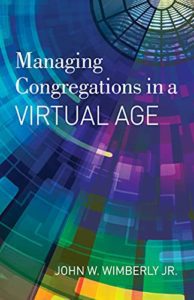
The beginning of the pandemic was overwhelming, but our focus was clear—figure out how to worship, connect, and teach in an online environment. The boundaries marking what we could not do provided clarity. Now, in-person engagement is returning and we face another kind of overwhelm—too many options. How do we make choices when some boundaries have been removed, but not everything is possible? To meet the needs of this season, we must help our leaders shift out of decision-making mode and into a discerning mindset.






